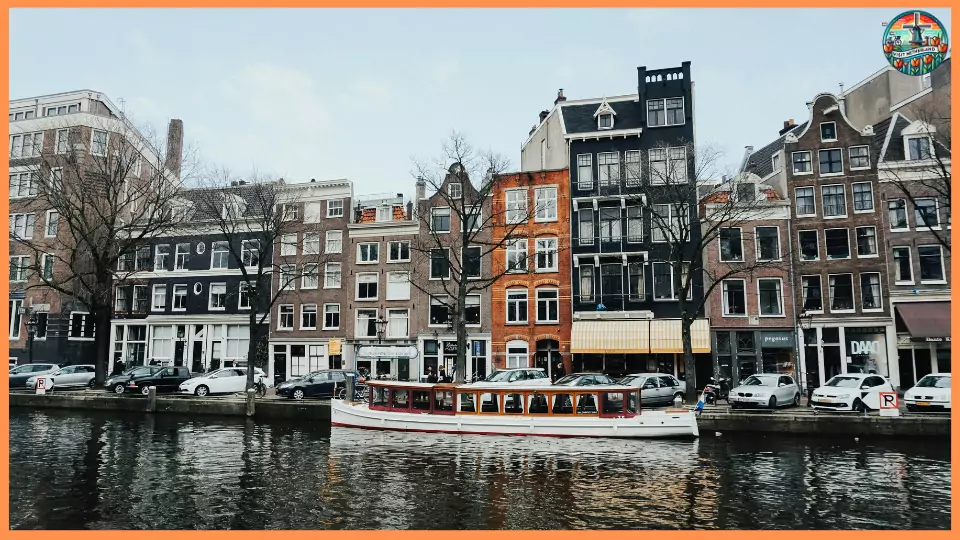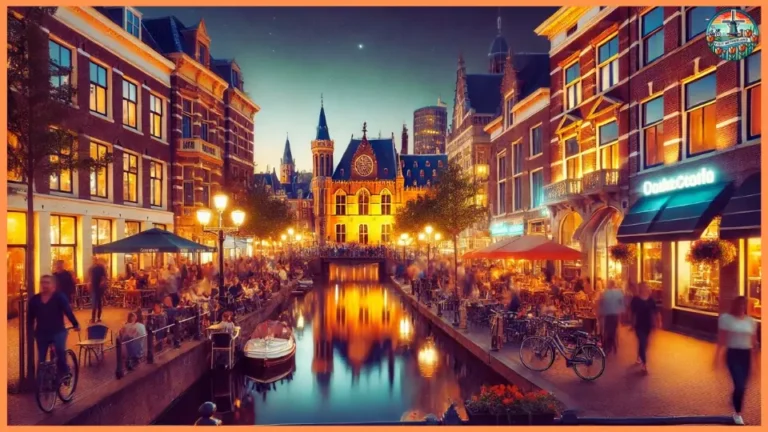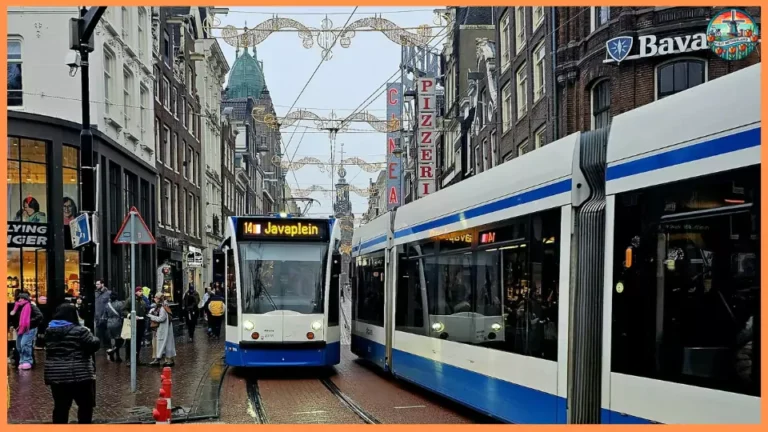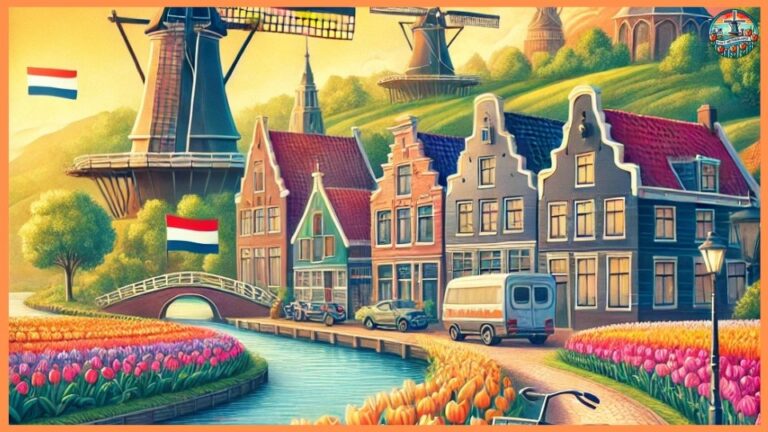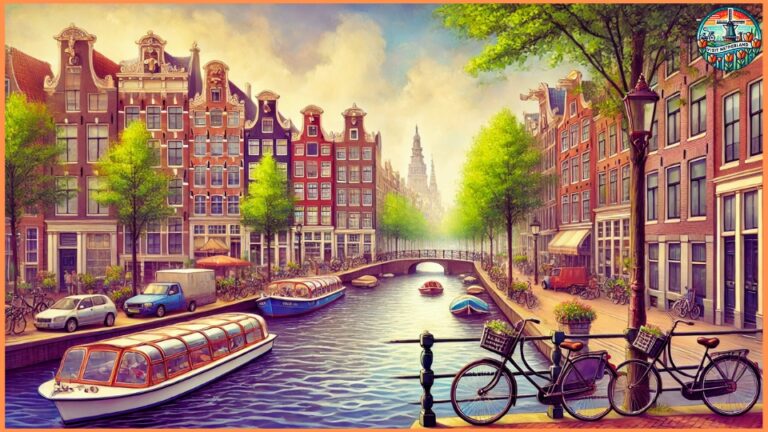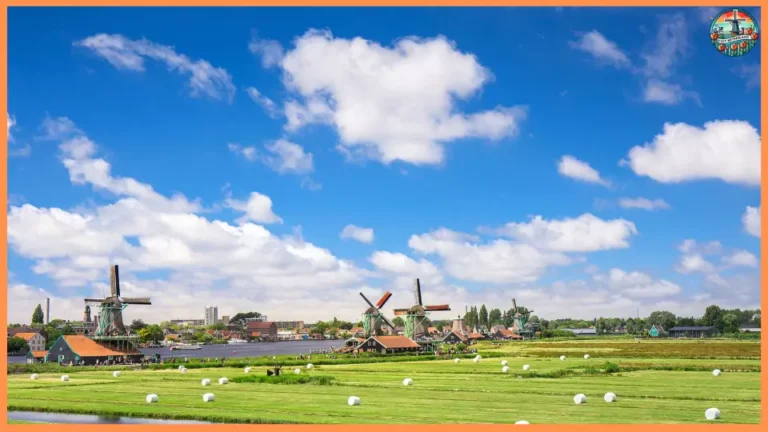Do the Dutch Prefer “Holland” or “The Netherlands”?
The Dutch would rather use the term “Nederland” than “Holland” for their country’s name. Yet, the differentiation between the two terms has always been misused, by foreigners and sometimes even by the locals. More than a semantic matter, it involves geography, history, and national identity. In this article, we’ll explore why “Holland” is frequently used incorrectly, why “The Netherlands” is the preferred term and the nuances behind this distinction.
1. The Difference Between Holland and The Netherlands
To clarify the most common confusion: The Netherlands refers to the entire country, which is officially known as “Koninkrijk der Nederlanden” (Kingdom of the Netherlands). It consists of twelve provinces, which are:
- Groningen
- Friesland
- Drenthe
- Overijssel
- Flevoland
- Utrecht
- Gelderland
- Limburg
- North Holland (Noord-Holland)
- South Holland (Zuid-Holland)
- Zeeland
- North Brabant (Noord-Brabant)
On the other hand, Holland refers to two specific provinces within the country: North Holland and South Holland. These two provinces, located in the western part of the Netherlands, are among the most populous and economically developed regions. They contain some of the country’s most famous cities, including Amsterdam (the capital), Rotterdam, The Hague, and Delft.
When people speak about the whole country as “Holland,” they actually name only a small part of it. That is not correct from a geographical point of view but has become a common and informal mistake. The Dutch themselves use “Holland” in common usage for the provinces North and South Holland but will never use it as a synonym for “The Netherlands.”
2. Why Do People Use “Holland” to Refer to the Entire Country?
The widespread use of “Holland” to describe the entire Netherlands can be traced to several historical, cultural, and economic factors:
Historical Dominance of Holland
Centuries long, North and South Holland were the most powerful and influential provinces in the Netherlands. During the Dutch Golden Age-the 17th century-the Dutch Empire reached its peak, and much of the country’s international trade, culture, and naval power came from the Holland region. Because of this, these provinces became the most well-acknowledged and globally known part of the Netherlands.
- Amsterdam, located in North Holland, became the capital and a major cultural hub.
- Rotterdam, in South Holland, grew into one of the busiest ports in the world.
Because of this historical prominence, the term “Holland” became synonymous with the entire nation in the eyes of many foreigners, especially when interacting with the Dutch during this period of economic and naval power.
Tourism and Global Recognition
Tourism also played a role in the use of the term “Holland” globally. Most of the iconic landmarks and tourist attractions of the Netherlands are located in the Holland provinces. This includes:
- The Canals of Amsterdam
- The Keukenhof Gardens (famous for tulips)
- The windmills of Kinderdijk
- The Rijksmuseum and Van Gogh Museum
These landmarks, combined with Amsterdam’s global recognition as a cultural and economic center, led to the misperception that “Holland” is synonymous with the Netherlands. In fact, tourism marketing has also perpetuated the use of the term “Holland” in many promotional materials aimed at attracting visitors to the country.
The Popularity of “Holland” in Sports and Media
In international contexts, such as in sports, the national teams often refer to themselves as the “Dutch” or “Holland,” despite the fact that these teams represent the whole of the Netherlands. This has led to a further entrenchment of “Holland” in popular culture and global media. The national football team, for example, is referred to as “Holland,” and the same is true for many other international sports teams and brands.
3. Why Do the Dutch Prefer “The Netherlands”?
While outsiders often use “Holland” to refer to the whole country, the Dutch themselves are typically more inclined to refer to their nation as “Nederland” or “The Netherlands”. Here are several reasons why:
Geographical Accuracy
The most significant reason is geographical accuracy. As mentioned earlier, Holland refers to just two provinces, not the entire country. For those who live outside of North and South Holland, the use of “Holland” to describe the whole country can feel like an oversimplification or misrepresentation of their regional identity. For instance, people from regions like Friesland or Limburg may feel that their identities are being overlooked when the entire country is referred to by the name of just two provinces.
National Pride
The term “The Netherlands” is the official name of the country, and using it reflects a sense of national pride. There is a growing awareness of the need to acknowledge the diversity and unity of all twelve provinces. The use of “The Netherlands” recognizes the full scope of the nation’s cultural and geographical variety. Many Dutch people feel that the global usage of “Holland” undermines the identity of their country as a whole, including the unique regions outside of the two Holland provinces.
Avoiding Confusion
When interacting with foreigners, Dutch people sometimes need to correct the use of “Holland” as a catch-all term. Referring to the country as “The Netherlands” is less likely to cause confusion, as it acknowledges all twelve provinces, not just the two most famous ones.
The Kingdom of the Netherlands
It is officially called the “Kingdom of the Netherlands”, or Koninkrijk der Nederlanden in Dutch. The word “Kingdom” implies this is part of a greater sovereign state, including not only the European but the Caribbean part: Aruba, Curaçao, Sint Maarten-three different islands in the Caribbean. Using the term “The Netherlands” shows a lack of ambiguity between the European nation and its Caribbean territories.
4. When Do the Dutch Use “Holland”?
Despite the preference for “The Netherlands,” there are still times when the Dutch use the term “Holland” — but usually in specific contexts. These include:
- Tourism and Marketing: Due to its global recognition, “Holland” is often used to represent the entire country in international tourism campaigns and branding. The Dutch tourist board, for example, often uses the term “Holland” in its promotional materials, especially for international markets.
- Historical Context: In historical discussions, particularly those about the Dutch Golden Age, “Holland” is often used as shorthand to refer to the dominant provinces of that era.
- In Sports and Popular Culture: As mentioned earlier, when it comes to sports, the “Dutch national team” is often called “Holland,” even though the team represents all provinces.
The Preferred Term and Its Significance
The Dutch, in everyday speech, prefer “The Netherlands” because it is geographically correct and reflects the full identity of the country, not just the historically dominant regions of North and South Holland. The use of “Holland” by outsiders is more a reflection of historical prominence and cultural misunderstandings than an accurate portrayal of the country as a whole. Although the name “Holland” still receives prominent usage in much media, tourist, and sometimes sporting circles, “The Netherlands” certainly represents the choice of term amongst the Dutch.
Touristically, that gives people a better ability to make known the recognition for respect in a cultural manner; hence, during one’s travel and speech about it, one has to be told that it’s the Netherlands, period-not Holland.

